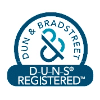
Insights
Articles


NR-1 and eSocial: what will change for companies in 2025?
Pryor Global has been closely following the changes brought by the new NR-1 and its impact on companies. In previous articles, we covered the main points of the regulation and the risks involved in non-compliance. Now it’s time to talk about an essential aspect: the integration of occupational safety and health (OSH) obligations into eSocial system.

Starting a business in Brazil: costs and the importance of specialized support
Entrepreneurship is a dream for many people. Data from the latest report by the Global Entrepreneurship Monitor (GEM), the world's leading survey on entrepreneurship, which is supported by the Brazilian Micro and Small Business Support Service (Sebrae), reveals that having their own business is the third biggest dream of Brazilians, second only to buying their own home and traveling around Brazil, respectively.

Dollar fluctuations: what do they mean for businesses?
Recently, the dollar reached R$6.18, driven by tensions between the United States and China. In yet another chapter of the trade war, the US government raised tariffs on Chinese products, and China responded with a similar measure. The move, prompted by President Donald Trump’s decisions, raised alarm bells in the global market and led investors to seek protection in safer assets, which put pressure on the exchange rate in Brazil.

NR-1: how companies must adapt to the new occupational health and safety rules
In January, we highlighted the importance of mental health management plans, which will become mandatory for Brazilian companies from May 2025. Now, with the updates to NR-1 (Regulatory Standard 1) in force, the role of HR and senior management in caring for employees’ health is gaining even more responsibility and visibility.

Why is it essential to keep your company’s records up to date?
Keeping registrations up to date with public bodies is mandatory for companies to be able to operate regularly in Brazil. However, irregularities are common and can result in various legal and operational complications. But what are the main obligations that a company needs to fulfill? Here are some examples.

ECD 2025: what you need to know
Digital Bookkeeping (ECD) is an ancillary obligation that forms part of the Public Digital Bookkeeping System (SPED). Its aim is to replace paper bookkeeping with digital files, making it easier to send accounting information to the Federal Revenue Service. Companies that are obliged to send the ECD must pay attention to the deadlines and updates for 2025, which have already begun to apply.





